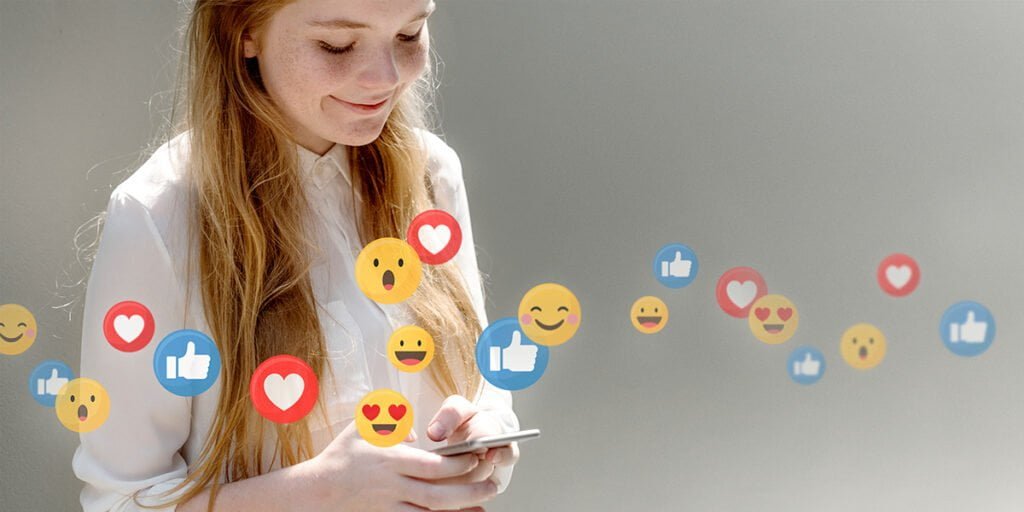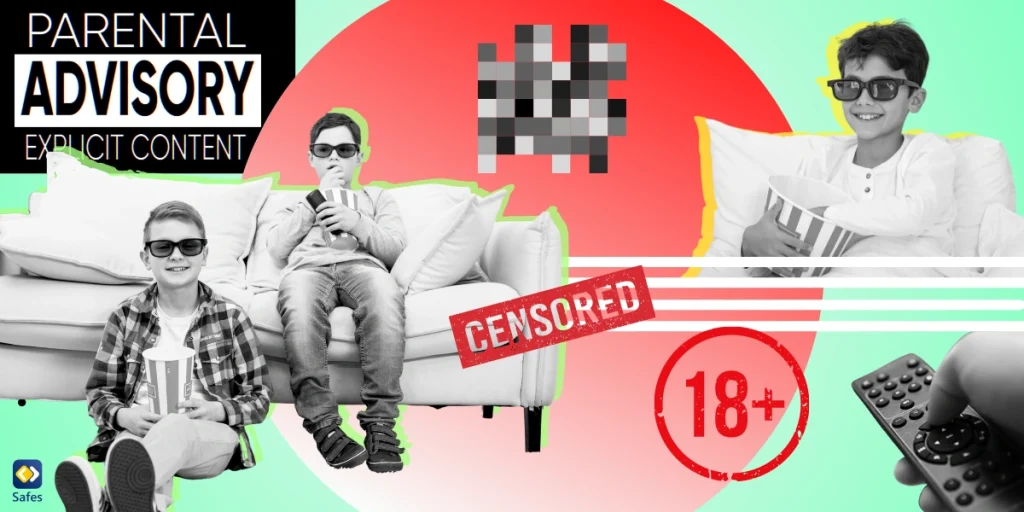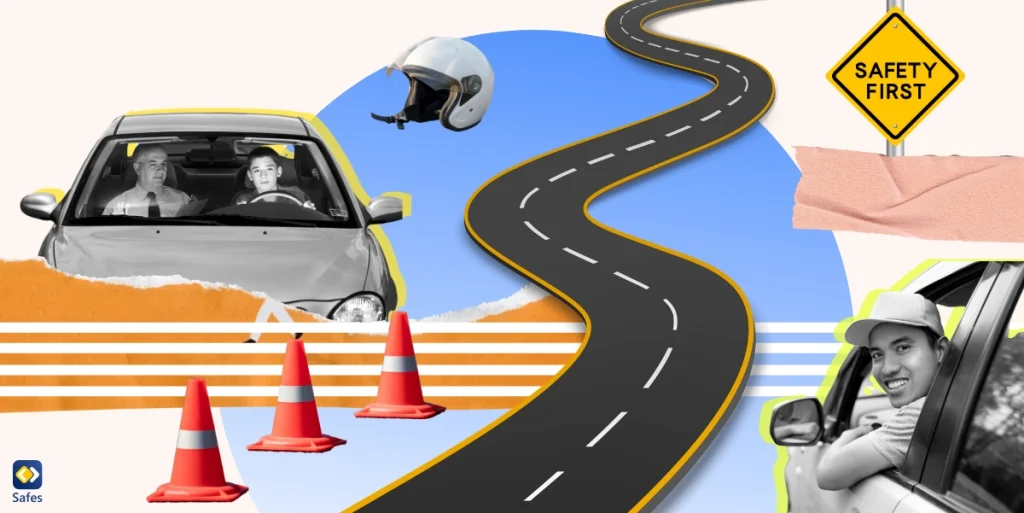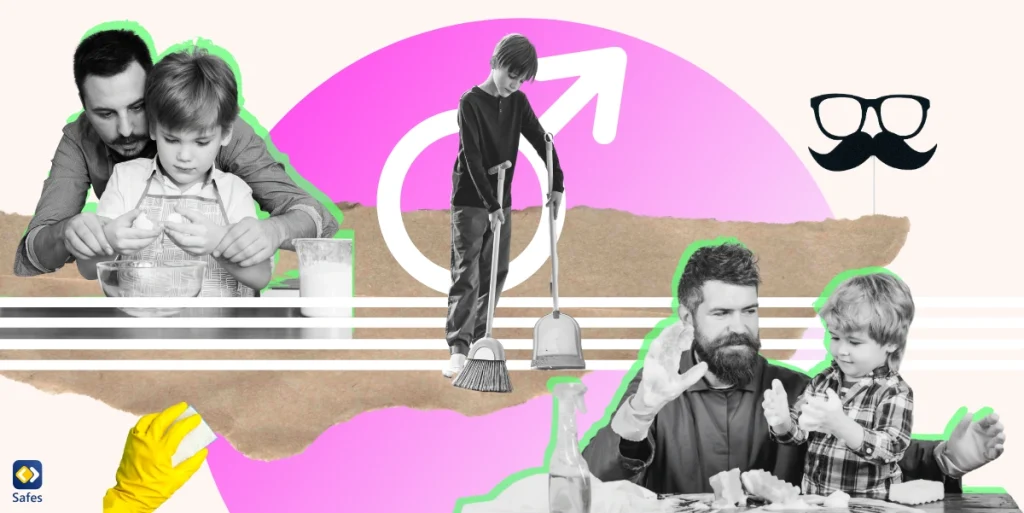Social media are viral among children. 71% of kids start using social media before they’re 14, according to Common Sense. However, most parents are doubtful if it is wise to let children use social media. Parents have repetitively asked us questions like ‘how does social media affect kids?’
Download and Start Your Free Trial of the Safes Parental Control App
It’s necessary to know that although social media may have disadvantages, they also come with multiple benefits for children. In this article, we aim to discuss the positive and negative effects of social media on kids and how to make social media safe for kids.
Positive Effects of Social Media on Child Development
Unlike what many parents may think, social media can have positive effects on child development. Based on The Conversation’s study on teenagers, social media help children express themselves, communicate with others, and receive emotional support. Therefore, by teaching children and moderating their activities on social media, we can help them benefit from social media.
We will discuss some of the significant positive impacts of social media below:
Using Social Media to Develop Creativity
Social media can be the perfect platform for kids to express their creativity. Children can share their art and literary works on most social media such as Instagram and Facebook. For example, they can share their photographs, paintings, drawings, music, and videos of their singing and dancing. They can also share their writings and literary works.
You can find teenagers on Instagram who are computer experts. They post videos about how to fix computers or review gadgets and apps. By doing such activities, kids can learn skills they can benefit from later in life.
Using Social Media to Keep up with the News and Trends
Social media gather everything that you otherwise had to look for on different platforms in one place. For example, you can follow an agency that covers art events, another one that covers technology, or yet another one that covers travelling and tourism. You can receive their latest posts using a single social media account. Without social media, kids would be deprived of important issues around them.
Using Social Media for Self-Expression
As kids grow older, they form a distinct identity from the people around them. Naturally, they wish to express their distinct self.
Social media create a suitable space for children to express themselves. Children can share their favourite music, movies, and fashion and express their ideas about things. Self-expression is fundamental in children’s development.
Using Social Media for Socialising
As the name suggests, social media are designed to help people have social interaction. Kids on social media can communicate with friends and family. This is particularly beneficial for kids who have relatives in distant areas.
If you think about when you were a child, we bet you’d remember how hard it was to stay in touch with relatives living in another city or country. Of course, chatting and commenting cannot replace face-to-face interaction. Still, they help keep relations alive that otherwise would be lost.
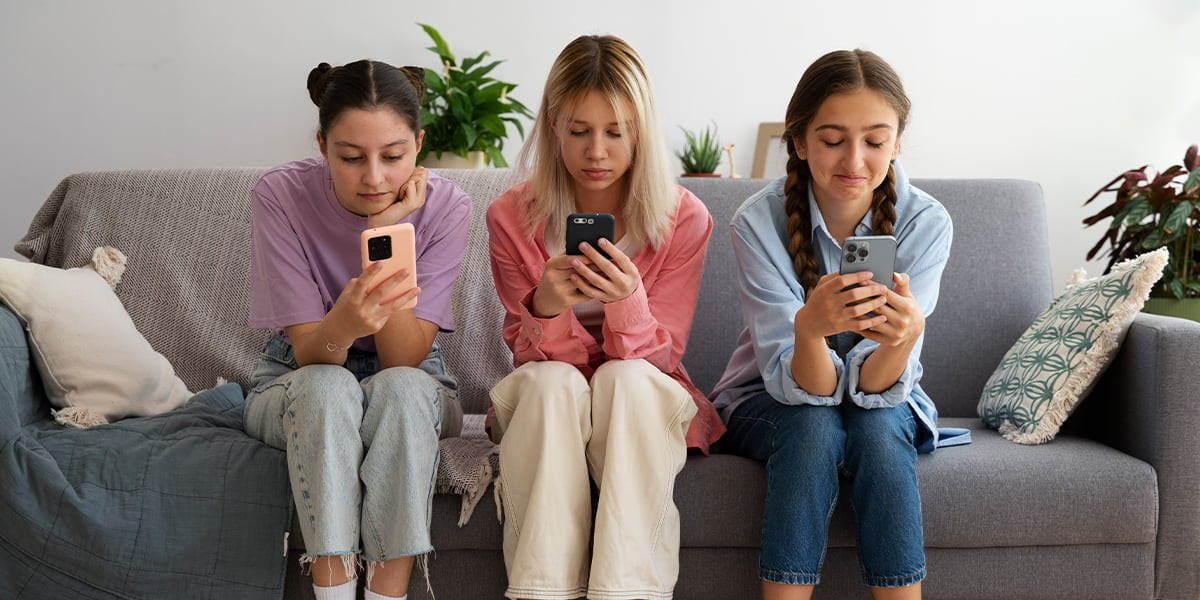
Negative Effects of Social Media on Child Development
Find below why social media is bad for kids.
Safety Risks of Social Media for Kids
Social media may cause several safety risks for kids. However, most of these risks are not limited to children and concern adults too. The negative effects of social media on children include:
- Privacy Issues
- Harassment
- Cyberbully
- Sexual Harassment
- Grooming
- Data Theft
- Hackers
- Phishers
Some of the children’s contacts on social media may not be people they know very well. Therefore, they put themselves at risk by sharing personal pictures and videos or private information such as addresses and locations with people who might abuse them.
Children are also at risk of being contacted by dangerous strangers. It’s possible that these strangers target children to cyberbully, sexually harass, or groom them.
The private chats on social media are hotbeds for hackers and phishers. It’s not unlikely for children to receive messages that invite them to divulge personal information or click on potentially harmful links.
Mental Health Issues for Children on Social Media
Mental health problems are perhaps the most destructive aspect of social media for children. How does social media affect kids’ mental health? The answer is by:
- A negative body image and causing eating disorders
- Receiving judgments from others
- Depression and anxiety
On social media, people tend to share perfect moments of their lives. They usually post dressed-up pictures and videos of their happy moments together or in unique places. Children are prone to comparing these singular moments of other people’s lives with their current situations. They may dislike themselves or their lives because they are not (in their esteem) as happy or as beautiful as others.
When your child shares something on the internet, one way or another, they’re judged by others. These judgments could be negative comments or messages or just getting only a few likes on the posts. This is, however, a matter of self-esteem. Some people are more sensitive to discrimination than others.
These judgments, whether positive or negative, have an impact on children’s brain development. How does social media affect kids’ brains? A study shows that constantly checking social media and receiving feedback can alter the parts of the brain associated with social rewards and punishment. That’s because adolescents are at a stage in life where they’re overly sensitive to other people’s opinions, and social media is a good place to be on the receiving end of it.
Children tend to be obsessed with trivial things such as the numbers of their stories and the likes of their posts. It’s been reported that some children give their Snapchat usernames and passwords to keep up their chat streaks (points given to users for each day of continuing a conversation). Such an obsession can lead to stress and anxiety.
Children’s Screen Time on Social Media
Since social media are so entertaining, they have the potential to engross children. Sometimes they spend several minutes scrolling up and down posts or swiping stories. If your child has many contacts or follows many accounts, they would have enough content to watch the entire day. Not to mention that social media, such as Instagram, suggest unlimited posts from people they don’t follow.
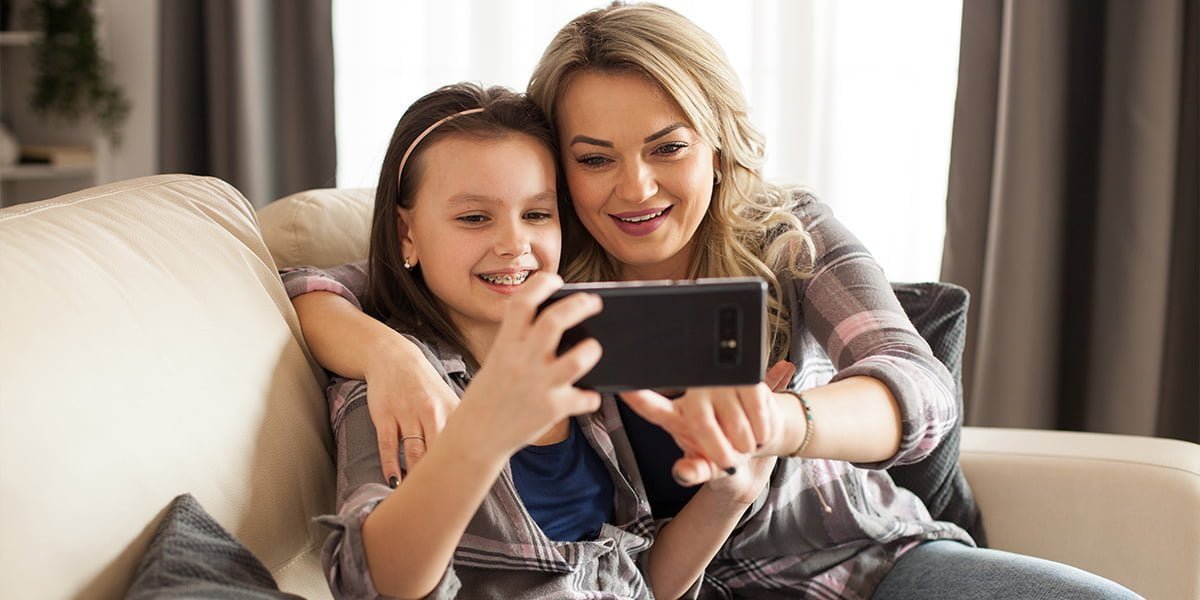
How to Control the Effects of Social Media on Children
Is social media bad for children? You probably now know social media are not indeed bad for children, but they have negative effects that must be controlled. In the following, we’ll suggest a 4-step solution to make social media safe for your child.
Educate Yourself on Social Media
To be able to help your child prepare for the negative aspects of social media, you first need to familiarise yourself with the threats and how to fight them. Therefore, if you’re not a tech-savvy parent, we suggest reading some articles describing how social media works. We also recommend using some of the social media that your child uses.
Talk to Your Kid about Social Media
Now that you know the risks and benefits of using social media, it’s time to enlighten your child. Tell them how to use social media positively, and avoid harm. Warn them against sharing content or information that jeopardizes their safety, privacy, and character. Advise them not to accept friend and message requests from strangers or open links sent by them. Ask them to report to you anytime they come across suspicious messages.
Monitor Your Kid’s Social Media Use
You can make sure your child is on the right track by monitoring their activity on social media. You don’t need to intrude on their privacy by checking their phones; you can monitor them by adding them as friends on social media.
You must also monitor your child’s screen time to avoid screen addiction. Parental control suites with screen time monitoring features such as Safes can help you in this case.
Control Your Kid’s Social Media Use
OSF Healthcare suggests a maximum of 2 hours a day of casual screen time for kids older than 5. If you deem your child is putting more time than they should on social media sites, you need to control their screen time. Safes parental control app can help you by setting a time limit for each app or group of apps. To make the task of setting screen time more straightforward, you can make a schedule for each day of the week.
Also, note that most social media platforms are restricted to people above 13. Since most social media have no age verification procedure, you need to take action to prevent your child from joining and using social media. In this case, again, Safes helps you. Using Safes, you can block social media apps and their web portals on your child’s phones, tablets, and computers. Start a free trial today to better understand and manage the effects of social media on your children. Download Safes now for informed parenting in the digital age!
Your Child’s Online Safety Starts Here
Every parent today needs a solution to manage screen time and keep their child safe online.
Without the right tools, digital risks and excessive screen time can impact children's well-being. Safes helps parents set healthy boundaries, monitor activity, and protect kids from online dangers—all with an easy-to-use app.
Take control of your child’s digital world. Learn more about Safes or download the app to start your free trial today!
